These times people are moving from one country to another more often than ever in the history of the world.
This is due to the air traffic growth, the active relocation of international companies' employees, the expansion of the activities of global corporations, as well as the tendency of people to look for the most comfortable places to live in the world.
Following the logic of Maslow's pyramid, when basic needs are satisfied, people tend to strive for something higher: culture, communication, and personal development. And these upper needs can be satisfied in cities and countries that are most suitable for harmonious development, where they can comfortably live, work, raise children, do business, and, finally, spend the rest of their lives. Thus, there are some criteria for a happy life for people of all ages: political and economic stability, safety, healthcare and education systems, culture and ecology, transport and other infrastructure, business environment, tolerance, and other factors. For this reason, the Economist publishes a ranking of the best (and worst) cities in the world every year. According to the Economist Intelligence Unit (EIU), coolest cities to live in the world in 2022 are Vienna, Copenhagen, Zurich, Calgary, Vancouver, Geneva, Frankfurt, Toronto, Amsterdam, Osaka, and Melbourne. The main criteria by which the cities were evaluated are stability, the health care system, culture and ecology, education, and infrastructure. From our side, we have studied how expensive life is in these cities and which benefits an investor can find there.
Here is our top 10 nicest cities to live.

Vienna (Wien)
Vienna - the capital of Austria - took first best place. It is the world best city for living. The average cost of living per month in this city (for two, including rent) is 4,000 euros. The main share of the country's economy is the service sector (65.8%). Industry accounts for 32.3% and agriculture gives 1.7%. When considering good areas for investment, it's better to ask experts of the Austrian Business Agency, now advice to invest in telecommunications, consulting, machinery, equipment, and software.
Pros of living in Vienna:
- ecology,
- good medicine,
- education,
- great service,
- economic and political stability,
- great travel opportunities.
Cons of living in Vienna:
- high-cost of housing,
- consumer goods, and services, shops and even shopping centers close early and do not work on Sundays,
- closeness and pedantry of local residents.
Now let's see more best cities to live in world.

Copenhagen (København)
In second place was taken by the capital of Denmark, Copenhagen. Also the best place to live in the world. The average cost of living per month in this city (for two, including rent) is 7 thousand euros. The share of industry in the national income is more than 40%. Leading industries: metalworking, mechanical engineering (especially shipbuilding), electronics, food, chemicals, pulp and paper, textiles. Denmark offers advanced knowledge in the fields of ICT, green technologies, and life sciences.
Pros of living in Copenhagen:
- free market economy,
- excellent welfare,
- high-quality of life,
- environmentally friendly products,
- the minimal gap between the rich and poor,
- the measured pace of life
- many possibilities for personal development,
- mild climate,
- calm friendly people.
Cons of living in Copenhagen:
- mild climate (there is not much difference between the seasons),
- Scandinavian peace
- language: even knowing the standard Danish well, its dialects are difficult to understand.
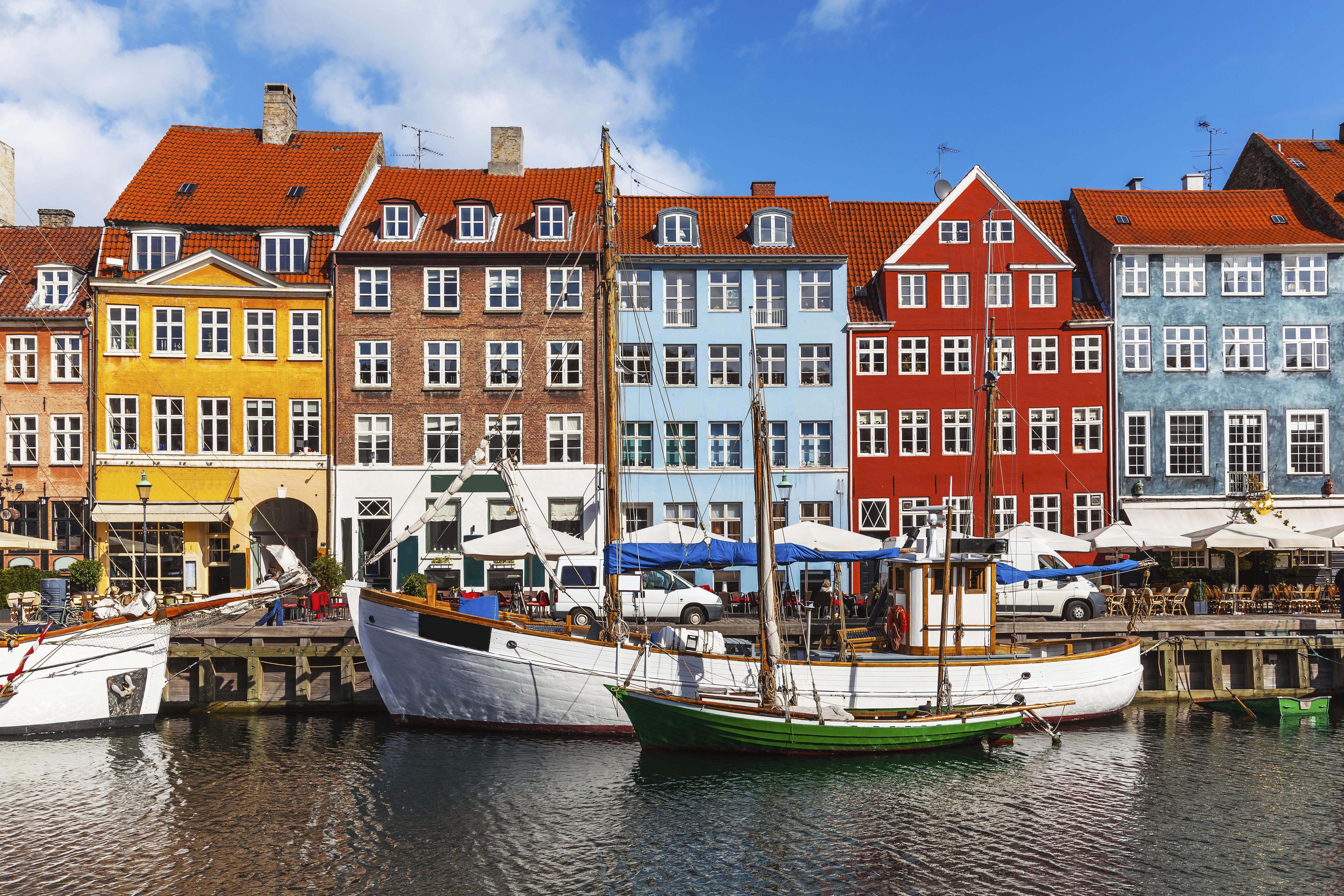
Zurich (Zürich)
The third place in the ranking is occupied by Zurich (Switzerland). Another good city for living, Geneva, got into the top 10, but we will talk about it a bit later. The average cost of living in Zurich per month (for two, including rent) is 7 thousand euros. The main sectors of the economy: are medicine, education, tourism, IT companies, and agricultural and fishing industries. Promising investment sectors: FinTech, MedTech, tourism, and education.
Pros of living in Zurich:
- safety, high standard of living and ecology,
- excellent infrastructure,
- good economy,
- the length of the working time.
Cons of living in Zurich:
- the costs of living,
- a difficult adaptation of expats.

Calgary
Canada occupied a third places of the list. Three Canadian cities entered the top ten: Calgary and Vancouver are fourth and fifth, Toronto is eighth. The average cost oflivingin Calgary per month (for two, including rent) is 4.6 thousand euros. The main sectors of the economy: oil and diamond mining, timber industry, fishing industry, natural resources, renewable energy sources, telecommunications, biotechnology and pharmaceuticals, information technology, and services. Promising investment sectors: real estate, technology, tourism, renewable energy production.
Pros of living in Calgary:
- a beautiful and clean cosmopolitan city,
- developed infrastructure,
- low taxes,
- high quality of life.
Cons of living in Calgary:
- very expensive parking
- traffic jams,
- due to the peculiarities of the city (it stretches from north to south), it takes a lot of time to travel from one area to another,
- relatively high housing prices (but there is a good return on investment in real estate),
- unstable weather, which can change several times during the day,
- winter starts early, moreover, snow can fall unexpectedly even in summer.
More best cities to live in in the world? Let's move on!

Vancouver
Next place is Vancouver. The average cost of living in this city per month (for two, including rent) is 5.7 thousand euros. The main sectors of the economy are oil and diamond mining, timber industry, fishing industry, natural resources, renewable energy sources, telecommunications, biotechnology and pharmaceuticals, information technology, and services. Promising investment sectors: real estate, technology, tourism, renewable energy production.
Pros of living in Vancouver:
- a unique combination of mountains, forests, and the Pacific coast,
- mild climate (warm winters, cool summers),
- ski resorts,
- advanced urban planning and infrastructure,
- Skytrain, multicultural environment,
- comfortable adaptation for foreigners,
- excellent education and medicine.
Cons of living in Vancouver:
- very expensive property
- traffic,
- natural disasters,
- frequent rains.
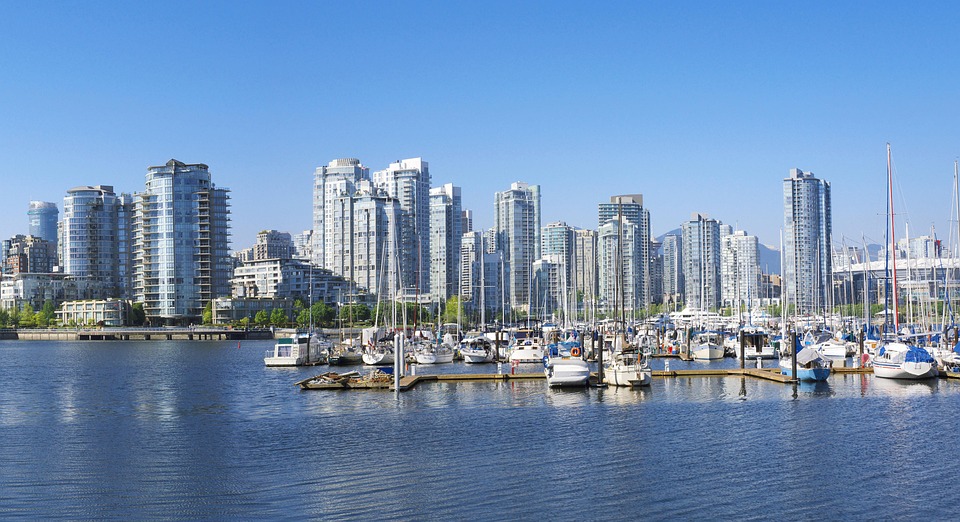
Geneva (Genève)
Here we go again - we are again at the foot of the Alps where people want to live. Beautiful Geneva is in sixth place in our ranking. The average cost of living per month (for two, including rent) is 7.5 thousand euros. The main sectors of the economy: are medicine, education, tourism, IT companies, industry, and agriculture. Promising investment sectors: FinTech, MedTech, tourism, and education.
Pros of living in Geneva:
- safety,
- high quality of life,
- ecology,
- infrastructure,
- rich cultural life
- balance of work and free time.
Cons of living in Geneva:
- the cost of living,
- difficulties with the arrangement and adaptation in a new place for expats.

Frankfurt (Frankfurt am Main)
Seventh place to live was taken by Frankfurt (Germany). The average cost of living in this city per month (for two, including rent) is 4.4 thousand euros. The main sectors of the economy: banking and financial services, medical technology, agricultural industry, transport and communications, light and food industries, metallurgy, chemical industry, mechanical engineering, shipbuilding, aerospace industry, energy, and renewable energy sources. Promising investment sectors: professional services, real estate, tourism, technology.
Pros of living in Frankfurt:
- safety,
- ecology,
- culture,
- medicine,
- education,
- the ability to travel,
- business potential.
- In general, be prepared for a city with a New York pace of life and European comfort.
Cons of living in Frankfurt:
- high taxes
- bureaucracy,
- difficulty finding housing
- you need to learn German.

Toronto
Let's move back to Canada and get acquainted with the eighth-best best place to live in the world- Toronto. The average cost of living per month (for two, including rent) is 5.3 thousand euros. The main sectors of the economy are oil and diamond mining, timber industry, fishing industry, natural resources, renewable energy sources, telecommunications, biotechnology and pharmaceuticals, information technology, and services. Promising investment sectors: real estate, technology, tourism, renewable energy production.
Pros of living in Toronto:
- safety,
- mild climate,
- great opportunities for building a career in the field of art, culture, media, information technology,
- rich cultural life.
Cons of living in Toronto:
- expensive real estate,
- traffic jams,
- very hot summer (by Canadian standards),
- built embankments.
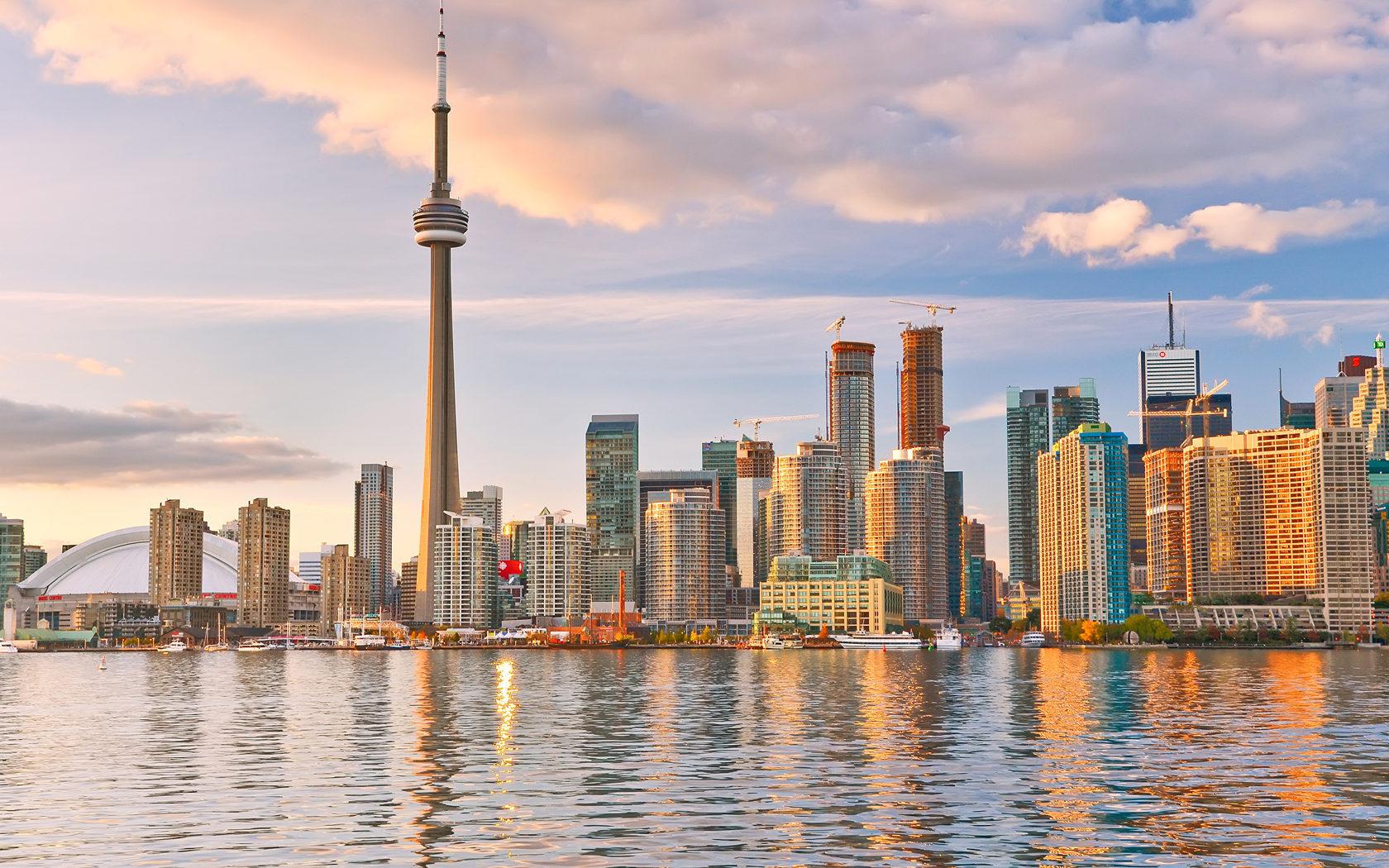
Amsterdam
In ninth place was cheerful and at the same time elegant Amsterdam (the capital of the Netherlands), another good city in the world. The average cost of living per month in this city (for two, including rent) is 5.4 thousand euros. The main sectors of the economy are oil production and refining, as well as other energy resources, agriculture, greenhouse flowers, financial services, technology, food production, household chemicals, cosmetics, metallurgy, aircraft manufacturing, automotive, and shipbuilding. Promising investment sectors: food production, greenhouse flowers, technology.
Pros of living in Amsterdam:
- a beautiful city with a rich history,
- lush vegetation,
- architecture integrated into the landscape,
- mild climate,
- the ability to travel,
- multicultural environment,
- comfortable accommodation for visitors,
- high quality of life,
- good ecology.
Cons of living in Amsterdam:
- high taxes
- frequent rains,
- expensive housing.
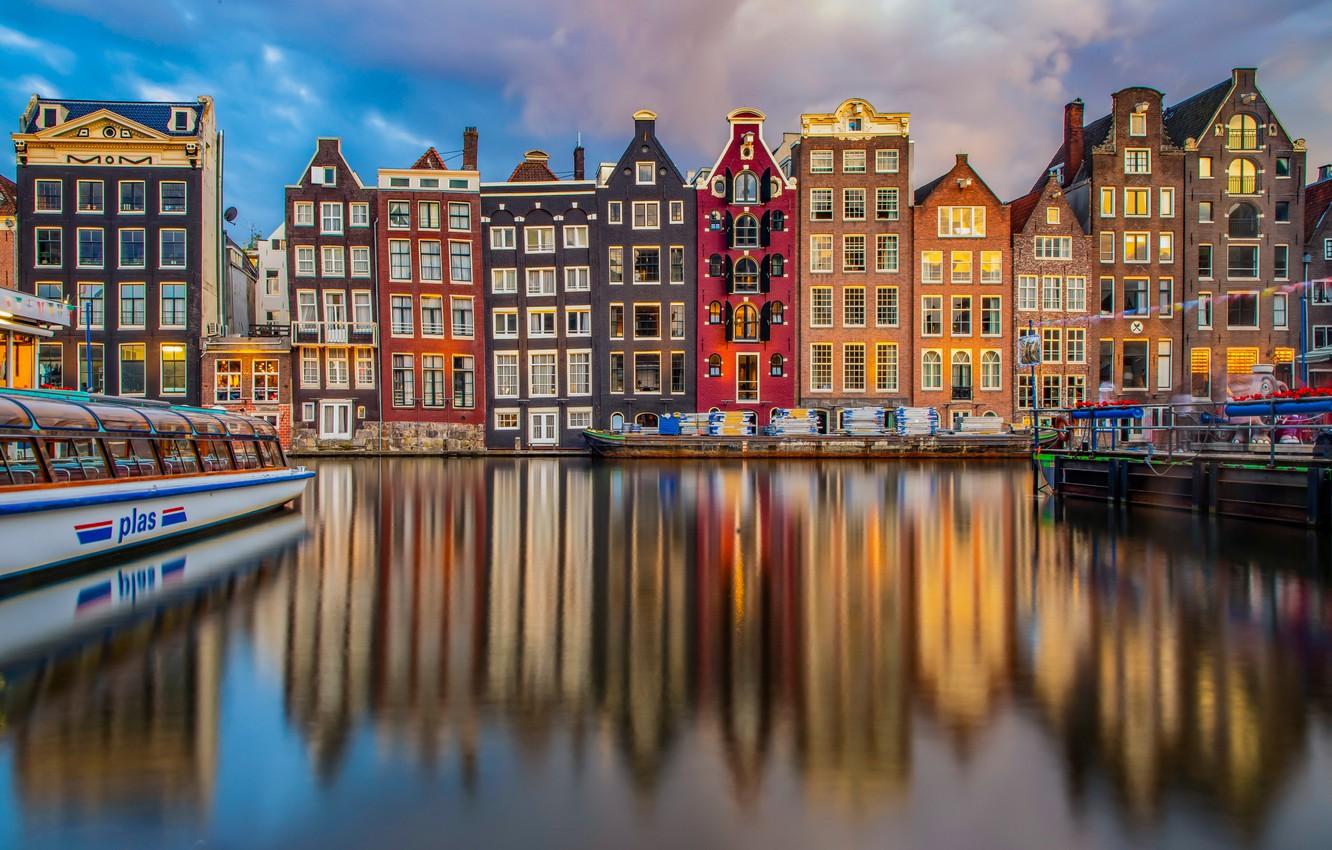
The tenth most ideal place to live in the world was shared by two cities at once: Osaka (Japan) and Melbourne (Australia).
Osaka
Is that a good city to live? The average cost of living in this city per month (for two, including rent) is 3.6 thousand euros. The main sectors of the economy: are energy (including hydropower, nuclear power, renewable energy), mining, minerals, agriculture, automotive and shipbuilding, electronics and electrical engineering, military industry, trade, medicine, and education. Promising investment sectors: energy, real estate, technology, medicine, education.
Pros of living in Osaka:
- the quality of food is in the first place,
- a stable economy,
- an active lifestyle,
- a lot of parks,
- good transport,
- clean environment.
Cons of living in Osaka:
- high taxes on goods and services,
- sometimes expensive housing,
- no English-speaking population.

Melbourne
The average cost of living in this city (for two, including rent) is 4,8 thousand euros. The main sectors of the economy: oil and diamond mining, timber industry, fishing industry, natural resources, renewable energy sources, telecommunications, biotechnology and pharmaceuticals, information technology, and services. Promising investment sectors: real estate, technology, tourism, renewable energy production.
Pros of living in Melbourne:
- excellent quality of life,
- mild climate,
- high-quality education and healthcare,
- a large selection of cultural and entertainment activities.
Cons of living in Melbourne:
- high taxes on goods and services,
- difficulties in obtaining a visa for foreigners,
- sometimes high housing costs.

And finally, the promised bonus!
The open, hospitable and affordable city for investors is Limassol.
Despite not being included in the top 10 best cities in the world, Limassol has great potential. In recent years, Limassol has become a leading business center in the eastern Mediterranean and home to a host of international companies, from fintech to gaming to tourism.

The average cost of living in Limassol per month (for two, including rent) is 4.2 thousand euros. The main sectors of the economy: tourism, services, agriculture, technology, IT, renewable energy sources. Promising investment sectors: residential and tourist real estate, telecommunications, consulting, software, restaurant business.
Pros of living in Limassol:
- excellent opportunities for investment and business development,
- profitable real estate (both residential and tourist),
- safety,
- vibrant cultural life
- a large expat community (Russians, Ukrainians, British, French, Germans, Italians peacefully coexist in the city),
- plenty of opportunities for outdoor enthusiasts: surfing, kayaking, tennis, horseback riding,
- excellent food, fruits, vegetables, fish and seafood are available all year round,
- 330 sunny days a year.
Cons of living in Limassol:
- traffic,
- summer heat (air conditioning is a must),
- problems with parking in the city center,
- lack of public transport
- constantly rising real estate prices (but at the same time it is very profitable).
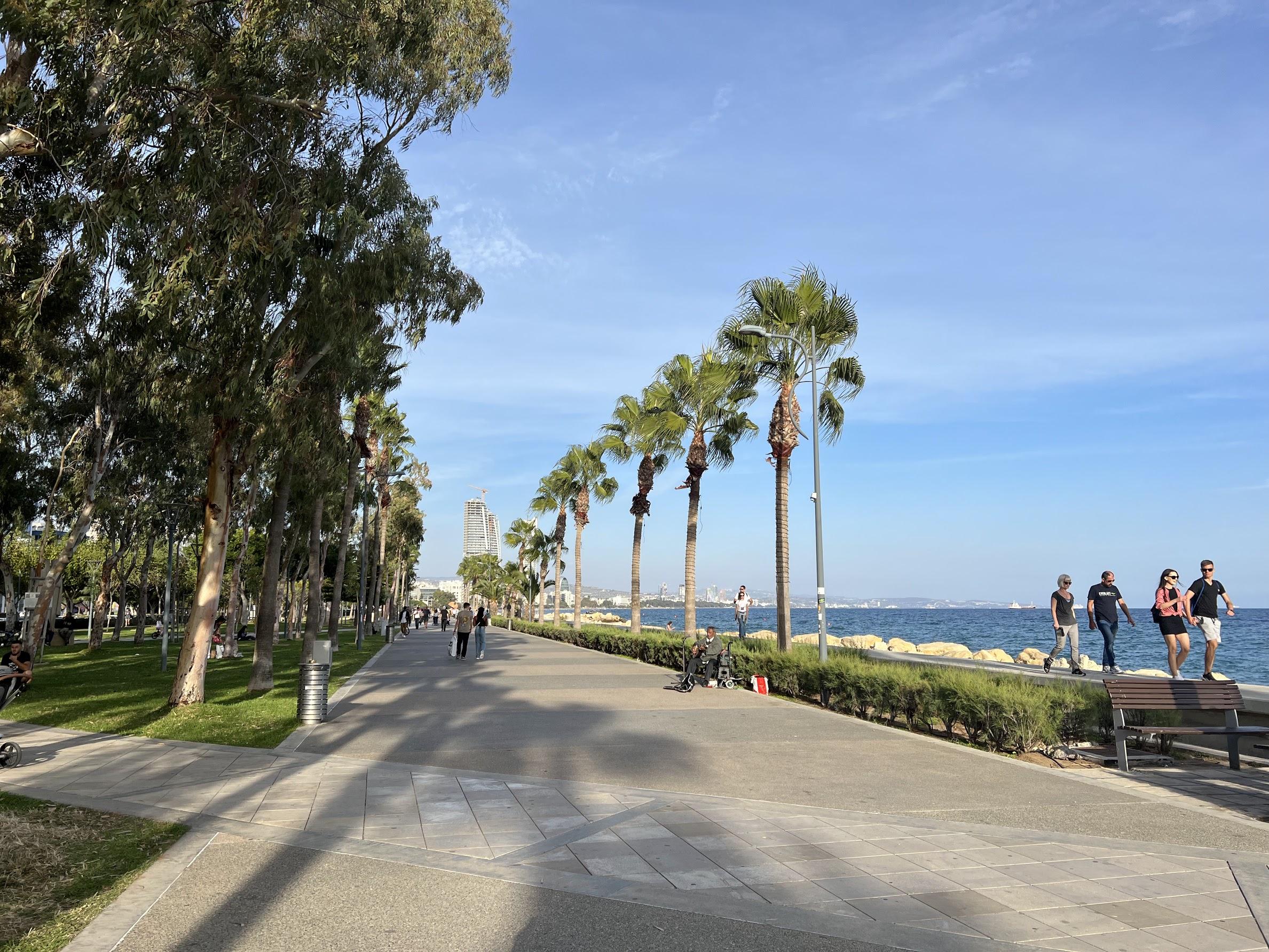
This ranking demonstrates that there are many options for different types of expatriates. Some move to a big city with highly-developed infrastructure while others could prefer a lifestyle of a small town. The most suitable cities can vary significantly depending on the criteria that come first: healthcare, housing, lifestyle, job opportunities, or education. It was top 10 nicest cities in the world.
Detailed information about all projects in Larnaca can be obtained from the specialists of DOM Real Estate agency via phone +357 24 030062, or in person at: Agias Faneromenis 21, Faneromeni 6025, Larnaca, Cyprus.
Read also:

